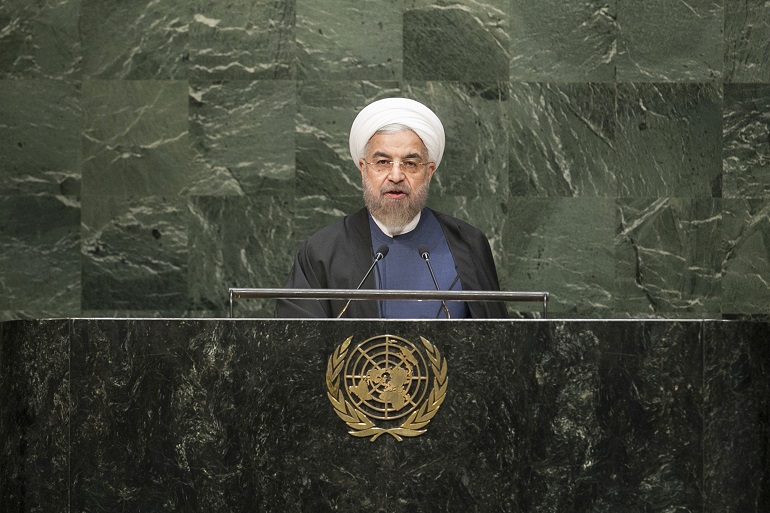IN THE MEDIA
No to backburner, yes to a two-track strategy
October 21, 2014 | Glen Falkenstein

Glen Falkenstein
The Strategist – 21 October 2014
http://www.aspistrategist.org.au/no-to-backburner-yes-to-a-two-track-strategy/
Iran’s securing nuclear weapons would destabilise a region already suffering from mass upheaval, in addition to having dire security implications for the rest of the world. Multilateral efforts to deter the sadistic actions of ISIS, a crucial priority, seem to have distracted from international efforts to halt Iran’s nuclear program. As identified in the recent post by Andrew Nikolic, a nuclear Iran remains a broader strategic priority and potentially worse threat.
Those multilateral efforts have been further complicated by Iran’s promise to fight ISIS, with President Rouhani indicating to the UN General Assembly last month that Iran would co-operate on ‘very important regional issues, such as combating violence and extremism’, while demanding concessions in the P5+1 nuclear talks. With reports over the past months of Iran sending Guards in to wage a conflict already being fought by the US, ‘both sides will have an interest in not allowing a confrontation or increased tension over the nuclear issue to interfere with the campaign against ISIS’, as noted by Gary Samore, former White House Co-ordinator for Arms Control.
Ostensible co-operation between the US and Iran on a common threat changes the dynamics of the talks. Complicating the situation even further are different messages coming from each power, with Susan Rice insisting the US held some ‘informal consultations’ with Iran about regional issues, while Iran’s Supreme Leader Ayatollah Khamenei has claimed that the US approached Iran to seek assistance in combating ISIS.
There are limited prospects for the P5+1 achieving a sustainable outcome from their negotiations with Tehran while world powers are simultaneously distracted by the need to combat an urgent and highly-visible threat. The supposed alignment of objectives between the US and Iran has seemingly eroded both the sense of urgency about an effective agreement and ability to achieve one. As noted by Clifford D. May in the Washington Times:
The Islamic State’s flamboyant barbarism has been consuming the oxygen, making it easy to forget that Iran has long been, according to the US State Department, the world’s leading state sponsor of terrorism.
The ISIS threat, while theoretically facilitating short-term co-operation between the US and Iran, in the longer-term may well strengthen Iran’s resolve to further its long-standing nuclear ambitions. As former US Ambassador to Iraq James Jeffrey pointed out (paywalled):
It (ISIS) can destabilise neighbouring states, including Jordan and even Saudi Arabia, drawing on networks of sympathisers in these countries. This could lead to an even greater threat to regional stability… and encourage Iran and other states to seek (and possibly use) nuclear weapons.
Further, AIJAC Executive Director Colin Rubenstein writing in The Australian recently commented:
A significant concern is that the critical efforts to stop an Iranian bomb will be sidelined—or, worse still, Iran and its proxies will be empowered as a result… There is reportedly little progress on the two key issues essential for any nuclear deal… greatly reducing the number of uranium-enriching centrifuges… and stopping construction of the Arak heavy-water nuclear reactor, which will produce easily-weaponised plutonium.
The focus on ISIS is important not only for the fate of nuclear proliferation in Iran but, as Nikolic identified, relevant to other states, including North Korea. The Six-Party Talks are still in a hiatus, despite China and Russia suggesting they could soon resume.
With the talks in Vienna facing a November deadline, it remains a strategic imperative that the international focus on ISIS not distract from ensuring Iran can neither secure nuclear weapons, nor produce them on demand. The only solution is for the West to pursue a two-track strategy: combating ISIS in a way that doesn’t undermine the effectiveness of the P5+1 talks, whilst ensuring that the negotiations don’t allow Iran’s actions against ISIS to distract from the necessity of a viable outcome.
Glen Falkenstein is a policy analyst at the Australia/Israel & Jewish Affairs Council.
Tags: International Security





